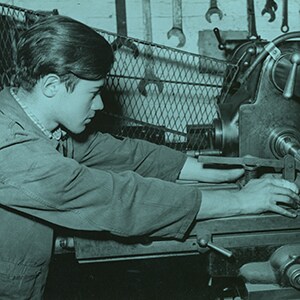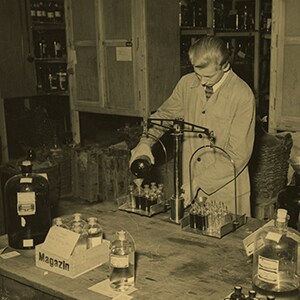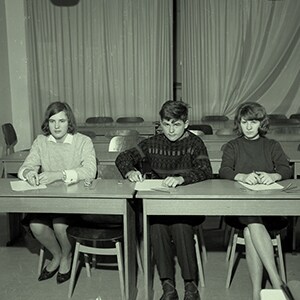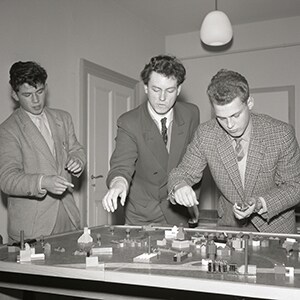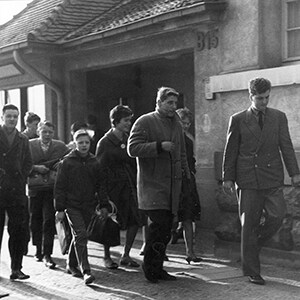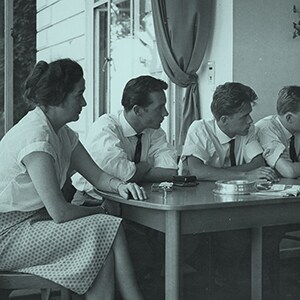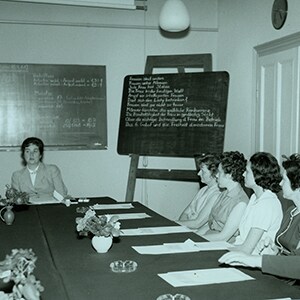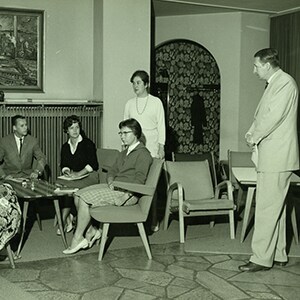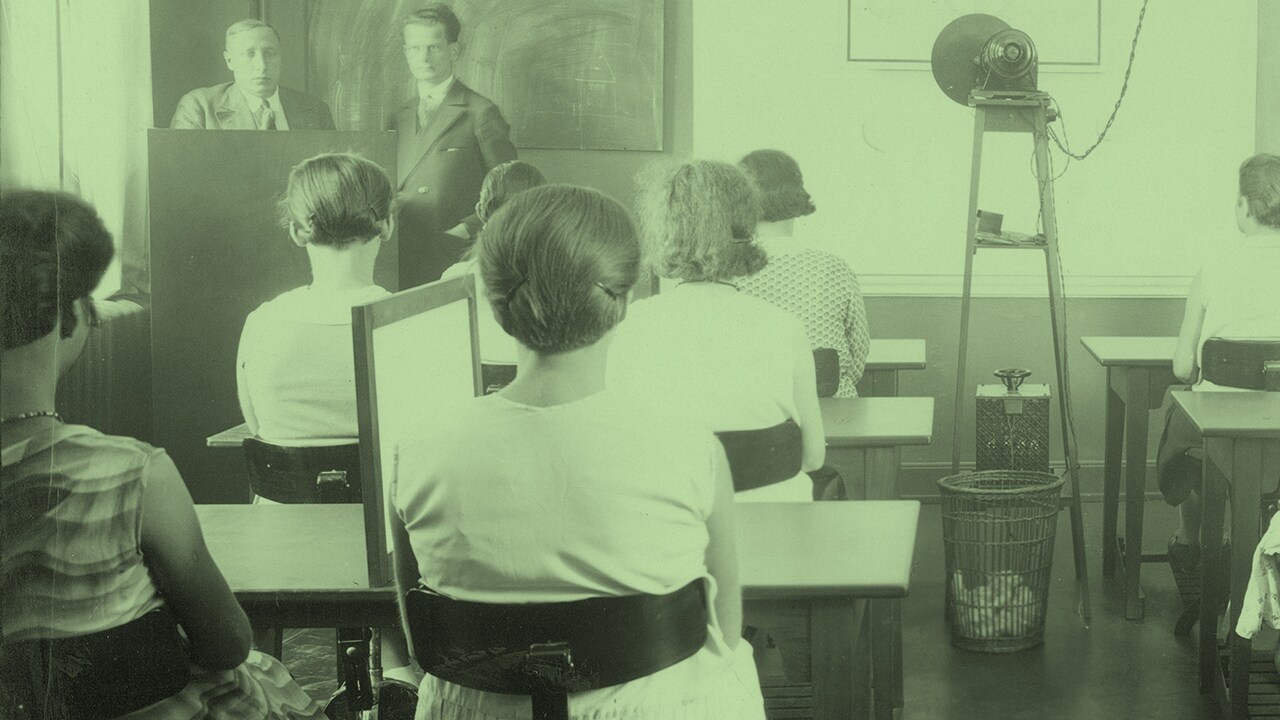
»The young man has the potential […] to become an undeniably useful worker…«
Excerpt from a test form, 1926
The establishment of a psychotechnical assessment center is a consequence of the economic hardship following World War I. The poor situation affects not only private individuals, but also companies like »Chemische Werke E. Merck« in Darmstadt, Germany.
For employees, this situation means reduced working hours, redundancies and, as the economy begins to recover, greater efficiency. The latter is attempted, for example, by implementing precise work controls in 1922 and by introducing a bonus system at the beginning of 1924. In order to secure the resulting achievements and to implement them across all areas, a »Psychotechnical Occupational Aptitude Assessment Center« is founded. Its objective is to test »all new workers being hired, as well as those applying for lower-ranking commercial occupations such as shorthand typists«. As a result, the candidate’s skills are grouped into ten attributes, enabling the company to identify the areas for which he or she is best suited.
The employees newspaper of 1937 contains a detailed article on the work of the assessment center. Candidates are assessed on the basis of both how the sample work is completed and the work behavior observed by the examiner. The focus is not on »special skills« but on »certain basic abilities [...] which are a prerequisite for performing certain types of work«. For the craftsman or the laboratory technician these can be »manual dexterity«, »visual sense of proportion« or »spatial perception«. One criterion for junior commercial staff is »empathy withthe customer’s mindset«. Finding the »most suitable candidate« for a particularjob was the goal, which did not necessarily mean being the »most talented«.
»Occupational guidance« should be »not only for the benefit of the company, but above all for the benefit of the applicants advised by means of the aptitude test«. Four years after the end of World War II, aptitude tests are again administered as of 1949. The demand for good young professionals starts to grow as the economy picks up. In 1954, »Industrial Psychology Consulting« becomes institutionalized at the company. The name is chosen at the request of the director, Liselotte Cauer. »Technical« disappears from the name, and the unit is assigned to the »management of the Social Policy departments«. As these moves show, the focus of attention shifts even more strongly to the people themselves. As of 1958, Cauer also has a direct supporter on the Executive Board, namely Emanuel Wilhelm Merck.
Good young professionals are in demand again in the recovering economy. In 1951, the employee newspaper reports: »Since examining applications only on paper does not necessarily reveal [...] the inclinations and abilities [...] of the job applicants, they will be subjected to a psychological aptitude test.«
Future apprentices complete written and practical assignments with the industrial psychologist Liselotte Cauer. In the mock-up test, it is not so much the appearance of the city created on the game board that is important, but the behavior of the participants. Those who pass will soon have their first working day, as here in April 1962.
In 1957, the first seminar is held for prospective commercial specialists. Last but not least, »the weight of their professional talent should be recognized...«. In 1958, Cauer wins direct support from a member of the Executive Board, namely Emanuel Wilhelm Merck (pictured right). Women employees discussing problems stemming from their professional life with a psychologist in 1961.

